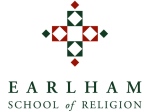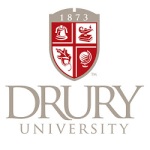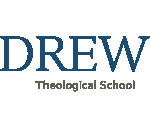Call for Presentations/Participants
Download as PDF
The Subverting the Norm conference series is unique in bringing theologians, philosophers, and religious studies scholars together with religious practitioners to encourage collaborative conversations about how continental philosophy can both inspire radical theologies within the academy and energize contemporary Christian discourse and practice. The third Subverting the Norm conference will specifically examine this intersection of theology, philosophy and lived religion in the light of contemporary political questions, both theoretical and practical. In particular, we hope to bring to the fore issues of race, gender, sexuality, and ethnicity – issues that have too often been eclipsed or marginalized in postmodern, political and postsecular theological discourse and church practice.
We would like to invite proposals for 1) individual papers, 2) panels of papers or workshop sessions, and 3) performance/art pieces (including transformance art/worship events, poetry/prose readings, art exhibitions, etc.) related to the conference theme. We are especially interested in presenters who can bridge the gap between the academy and the church, and whose presentations are accessible to specialists and non-specialists alike. Preference will be given to presentations that connect not only with the academic community but with church audiences as well.
About Subverting the Norm III
Keynote speakers include Catherine Keller, J. Kameron Carter, John D. Caputo, Sarah Morice Brubaker, Sandhya Jha, Namsoon Kang, Peter Rollins, and more TBA
Over the course of the first two Subverting the Norm events, important political questions emerged that merit intentional reflection. The third Subverting the Norm conference will ultimately ask, therefore, At what level is postmodern theology insufficiently political, at least insofar as it plays out in academic and church circles?
We are eager to receive proposals from people who can help us shape the event around several critical questions, including but not limited to the following:
— In what ways is the work of religious thought offered by postmodern theologies (broadly understood) also a work of political thought? How might the work of postmodern theologians and philosophers add to existing analyses of the relationships between politics, society and religion? How might it contribute to current debates within political theology? What does it have to offer contemporary political action and activism? How do we conceive of the political and the postsecular? In what ways do postmodern theologies confront neoliberalism and so-called ‘capitalist realism’ with alternative conceptualisations of political identity and subjectivity and of social interaction and organisation? Can these theologies thereby open theoretical and practical possibilities for collective resistance and for social, political, economic and ecological transformation?
— In what ways are works of postmodern religious practice (broadly understood) vehicles of political critique and change? What kinds of spaces do the communal practices of postmodern religious collectives create? In what ways do participation in these practices and spaces affect subjective transformation and inform and impel action in the public sphere? Are these postmodern religious collectives contributing to a new and distinct approach to socio-political transformation? How might their communal practices contribute to the cultivation of the kinds of militant subjects envisaged by the turn to (especially Pauline) Christianity undertaken by several political philosophers today? Or do these collectives mimic rather than challenge the kinds of gestures in relation to contemporary political, social and economic cultures that they hope to transform?
— Why do so many strains of the postmodern religious conversation (death of God theologies, postsecular philosophies, radical theologies, and emerging Christianity) – despite their emphases on the other – tend to be dominated by white male voices that are usually from significant privilege? What are the implications of the dominance of this demographic, within both academia and the church, for the future directions of radical political theology? In what ways does postmodern theological thought operate according to an underlying logic that is gendered, heteronormative, and often supersessionist? And what might radical theologies learn from theological traditions that more often place questions of power at their centre, such as liberation, feminist, queer, and postcolonial theologies?
Contributions to the conference may focus on any figure(s) and/or stream(s) of thought within recent and contemporary philosophy, theology, and social and political thought, but presentations must address their relationship to lived religion by attending to questions such as those posed above.
To propose an individual paper or workshop, please send abstracts or short descriptions of no more than 250 words to subvertingthenorm@gmail.com by the submission deadline of May 1, 2015. In the case of proposals for sessions containing more than one presentation, proposals must include a 250-word abstract for each presentation as well as for the panel as a whole. Please also indicate any audio-visual requirements in your email. To propose a performance/art piece, please send a short description of no more than 250 words and indicate what is required in terms of installation and/or room capacity etc.
Further questions may be directed to the conference organisers: Karen Bray (karen.bray@gmail.com), Katharine Sarah Moody (katharinesarahmoody@gmail.com) and Phil Snider (philsnider@gmail.com).
As in previous years, a select number of contributions to the conference will be considered for publication in an edited collection.
About the Subverting the Norm Conference Series
‘My atheism gets on in the churches, all the churches, do you understand that?’
– Jacques Derrida.
‘Postmodernism and Religion’, Derrida says; ‘two things that are strange to me’. And yet his work has been seen as part of the ‘theological turn’ in so-called ‘postmodern philosophy’, which has, perhaps surprisingly, become one of the most formative schools of thought shaping the future of twenty-first-century theology. While many contemporary philosophers continue to turn to the Christian tradition – often interpreting it in radical, even irreligious ways – do they ever wonder, with Derrida, how their atheism gets on in so many of the churches?
The strength of Subverting the Norm lies in its ability to create an atmosphere where theorists and practitioners drawn to postmodern and radical theologies (broadly conceived and usually influenced by continental philosophy of religion) can come together to reflect on the implications and possibilities that such approaches to theology provide the church. No conference series like it exists, which is the primary reason that it has drawn over 300 delegates from four continents.
The genealogy for Subverting the Norm can be traced to the ‘Religion and Postmodernism’ conference series at Villanova University and, later, the ‘Postmodernism, Culture and Religion’ series at Syracuse University, both of which were co-convened by John D. Caputo. While aimed primarily at academics, several contributors to these events have a shared interest in the way postmodern theologies might shape actual church practice, and the most recent ‘Postmodernism, Culture and Religion’ conference (2011) included a panel on the work of Peter Rollins, who draws on psychoanalysis and continental philosophy of religion in his books for popular church audiences. This signals growing awareness within the academy of the interest that contemporary work in a variety of disciplines holds for religious practitioners. In 2010, having identified this intersection of philosophy and theology with concrete church practices as an opportunity to further this conversation through public events, Drury University extended an invitation to both Caputo and Rollins, along with a handful of other leaders in the field, to launch what has now become Subverting the Norm.
While there are numerous churches that find insights from mainline Protestant theology helpful, it is the task of this conference series to explore the relationship between more radical postmodern approaches to theology and what might be called ‘the actually existing churches’. What can thinkers who in large part reflect on what comes after the God of metaphysics offer contemporary Christian discourse and practice? In other words, how might postmodern theologies live in the churches?





